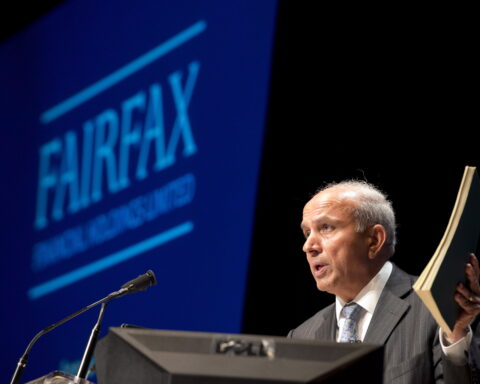Foreign Minister Chrystia Freeland has expressed the desire for Canada to include environmental protection in a renewed North American Free Trade Agreement (NAFTA); a laudable objective and a very positive step forward. However, in light of the environmental and sustainable development chapters recently included in the Trans-Pacific Partnership (TPP) and the Comprehensive Economic and Trade Agreement (CETA), it is important to raise the question of the future status of the North American Agreement on Environmental Cooperation (NAAEC). This is otherwise known as one the NAFTA “side agreements” that has served as the voice of the North American environment.
The NAAEC, adopted at the same time as NAFTA in 1994, sets up the North American Commission on Environmental Cooperation, which is assisted by a Secretariat. The Secretariat is a quasi-independent organization staffed by citizens of the three NAFTA countries and receives citizen complaints alleging that a NAFTA country is failing to enforce its environmental laws known as the Submissions on Enforcement Matters (SEM) process. If the complaint is deemed receivable, the Council of Ministers of each of the three NAFTA countries may decide by consensus or 2/3 vote to authorize the Secretariat to prepare a factual record detailing the facts concerning an alleged failure to enforce environmental laws at the federal level. Once this record has been prepared the Council may decide, again by consensus or 2/3 vote, to authorize the Secretariat to publish the factual record. The Secretariat may also prepare studies of issues facing the North American environment.
The NAAEC is not perfect and much could be done to improve it, but over the years the NAAEC has performed a valuable role by focusing on the broader problems of the environment of North America. Valuable information has been exchanged through the NAAEC as to how the three different NAFTA partner countries and different levels of administration deal with environmental questions. Some of the most controversial projects in North America have led to the SEM process being used successfully by citizens, community groups and NGOs. Factual Records were published in cases as diverse as the new port in Cozumel Mexico, British Columbia logging and hydro authorizations, mercury emissions from coal fired power plants in the U.S., as well as industrial operations in El Hermosillo and the environmental pollution. Many more records were prepared but not made public, although the Council decision in each case is public.
The chapters on environmental protection recently included in the TPP and CETA contain nothing comparable to the role and independent powers of the NAAEC Secretariat. Should the TPP or CETA environmental chapter models be followed without taking the NAAEC into account, a valuable environmental institution will be lost. This would be a tragedy. The NAAEC can certainly be improved, but it should not disappear.
The Submission on Enforcement Matters process remains one of the most accessible international environmental processes that exist today. NAFTA renegotiation should envision improvements to the environmental provisions already which are likely to be included. For example, it might be desirable to constrain the Council’s powers not to authorize preparation of factual records and publication of them by requiring a negative consensus, in which all three Ministers must decide together. Ensuring that factual records are prepared and made public unless there is a negative consensus of the Council would make more valuable information about the North American environment publicly available, as well as encouraging more positive environmental action by each state.
If an environmental chapter is included in the modernized version of NAFTA, it should not be based on the TPP and CETA precedents. These proposals rely more on state to state dispute settlement than on development and exchange of useful environmental information. Rather, having an institution designed to promote environmental cooperation would create a cooperative framework for citizens of all three countries to become properly engaged.
Markus Gehring is a senior fellow with CIGI’s International Law Research Program focusing on international economic law, trade and climate change, as well as trade, investment and Sustainable Development Goals.
Armand de Mestral is an expert in international economic law, professor emeritus and Jean Monnet Chair in the Law of International Economic Integration at McGill University and a CIGI senior fellow.







